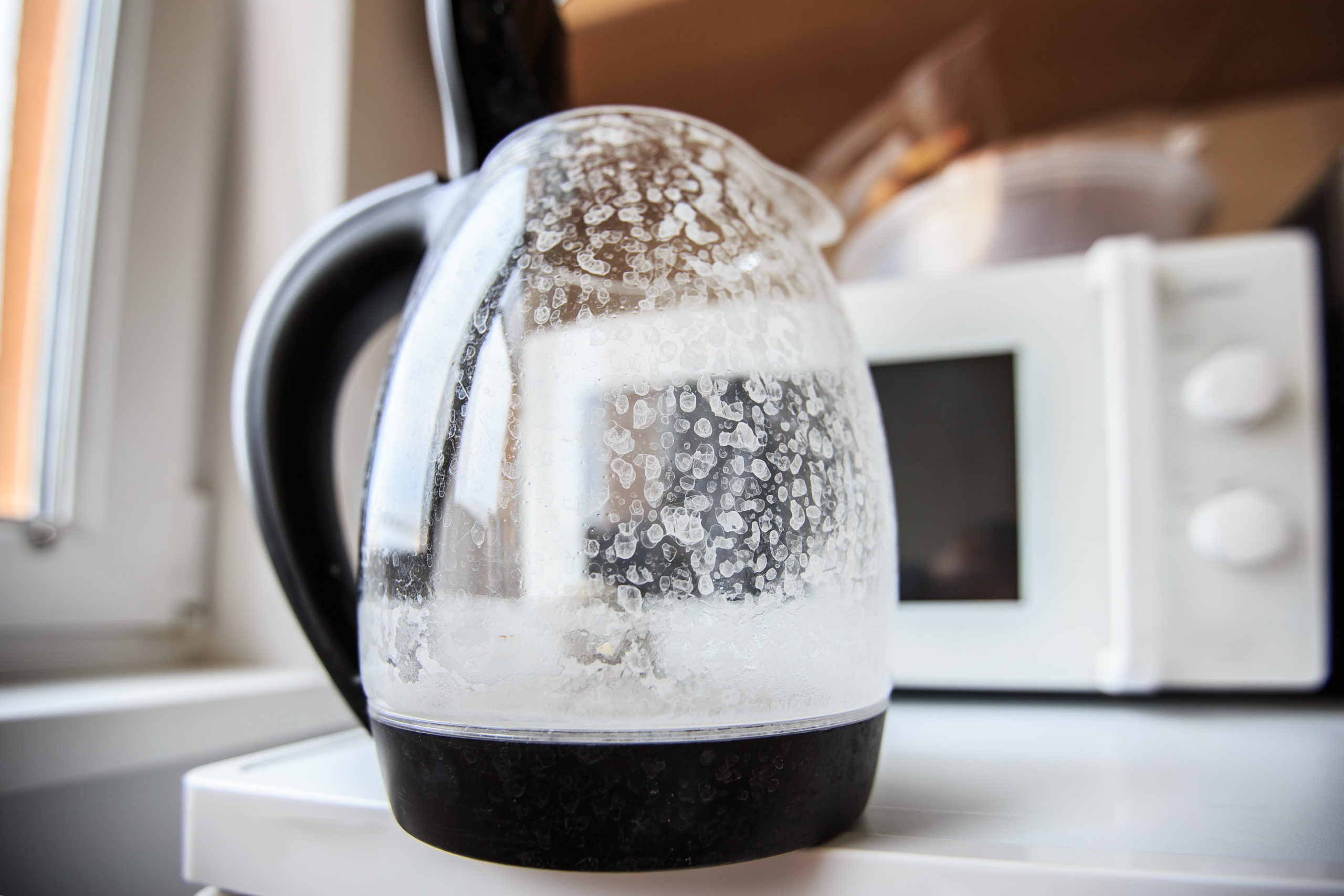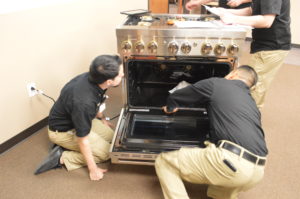There are several benefits to having a home with hard water. It offers health benefits from the mineral composition and can even assist with the health of your heart and bones if consumed. Because of these minerals, when not utilized for consumption, it causes a filmy-like substance behind – which is why some don’t like it as it causes buildup on hair and skin. Do you see where we’re going yet? Although it has benefits, there are some things that you should know as it pertains to hard water and appliances.
Dishwasher
If you find that your dishes or dishwasher have a white residue leftover after a load of dishes, you most likely have hard water and we suggest the following:
Rinse Aid – Use rinse aid when washing your dishes. Not only will it improve your drying times, it will also assist with preventing hard water deposits.
Premeasured detergents – Using a tablet or gel pack will reduce white film over time which is suitable for harder waters.
Water softener – Extremely hard waters can cause damage to your dishwasher over time and not produce the best of results. A water softener is recommended to prevent damage.
Clean your filter regularly – Rinse your filter regularly to prevent hard buildup. If you have hard water and calcium deposits, a soft brush may be required.
Cleaning – Per the Use and Care Guide from the manufacturer, it is recommended to clean your dishwasher with a commercial cleaner once per month to avoid white residue buildup.
Detergent Booster/Water Softener Additive – They make these solely for the purpose of extending your dishwasher’s longevity and producing better results when you have hard water.
Troubleshooting Dishwasher
Cloudiness on Dishes After a Wash – To see if the cloudiness is from hard water, soak that dish in white vinegar for five minutes. If it disappears, it is due to hard water. You need to adjust your detergent and rinse aid.
Food Soil Remains on Dishes – More detergent is needed for hard water conditions. It’s always best to refer to your Use and Care Guide provided by the manufacturer.
Troubleshooting Clothes Washer
Not Cleaning or Removing Stains – If you have hard water or a high amount of iron in your water, it is recommended to obtain a water softener or rust filter.
Not Cleaning or Removing Stains – Not enough detergent was used to accommodate for hard water. Refer to your Use and Care Guide for proper instructions.
Dingy Colors – Hard water is most likely the culprit. Make sure you’re using proper amounts of detergent.
Cleaning Your Washer – If you have hard water deposits, it’s important to only use ‘washer safe’ cleaners. For instructions on how to regularly clean your specific washer, it’s best to refer to your Use and Care Guide.
Refrigerator
White Residue Near Water Dispenser and Drip Tray – From previous statements above, we’ve learned that hard water has more minerals, especially calcium. Over time, you could start to notice white buildup near your water dispenser and especially in your drip tray. Make sure that you are wiping down the areas once a week to prevent buildup. And as always, refer to your Use and Care Guide on cleaning instructions for your specific refrigerator model.
We hope that we’ve shed some light on hard water and its effects on your home appliances. We also referenced your Use and Care Guide provided by your manufacturer several times. If you do not have a physical copy anymore, you can try to find it on the manufacturer’s website. They host a lot of helpful information for maintaining your appliance and troubleshooting guides. If you’re having any issues with your appliances, rest assured that we are here to help. You can call us at 817-568-2866 and we will be happy to send out one of our experienced technicians to diagnose and repair the issue. Thank you for letting our family help yours!




